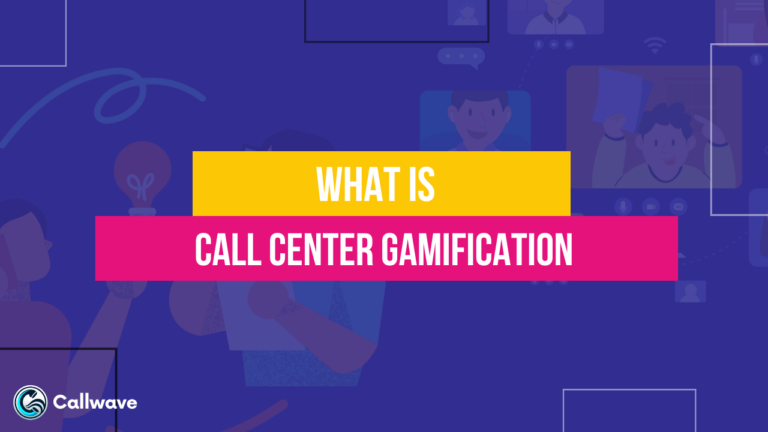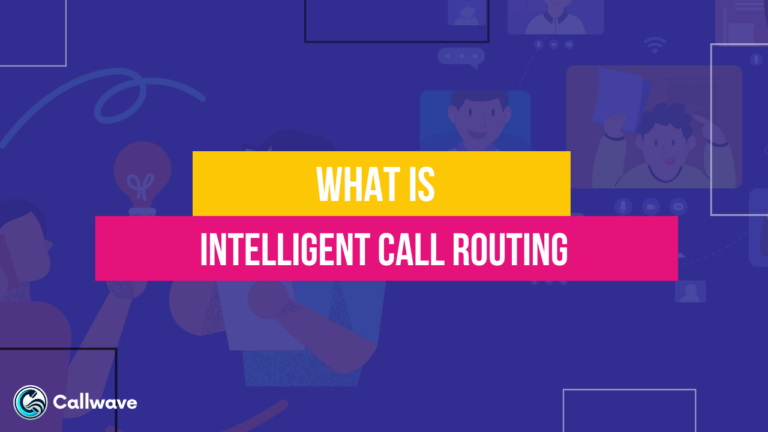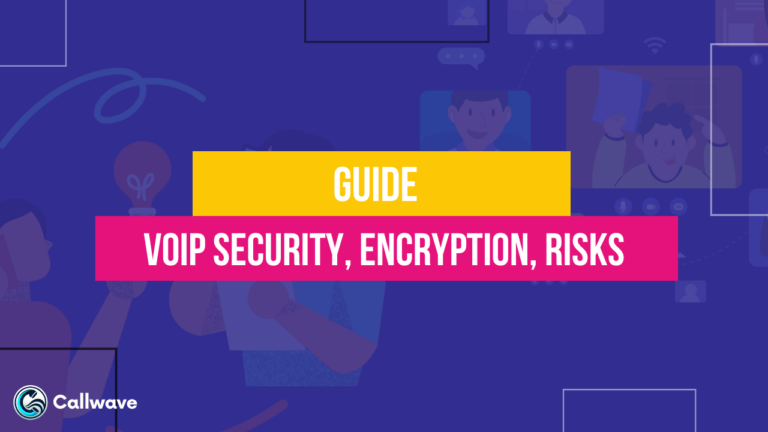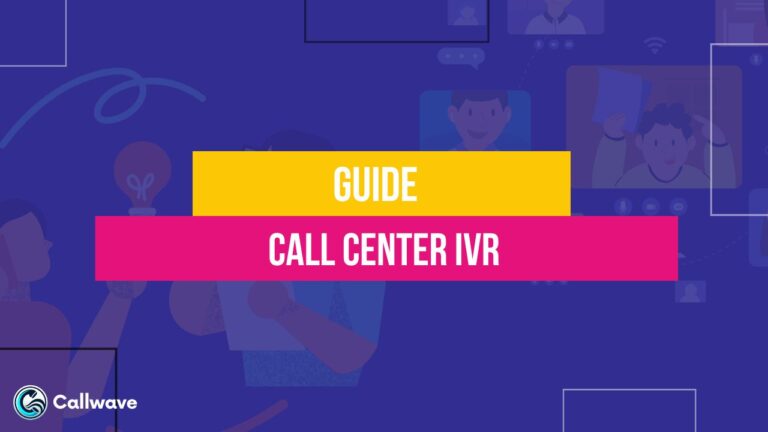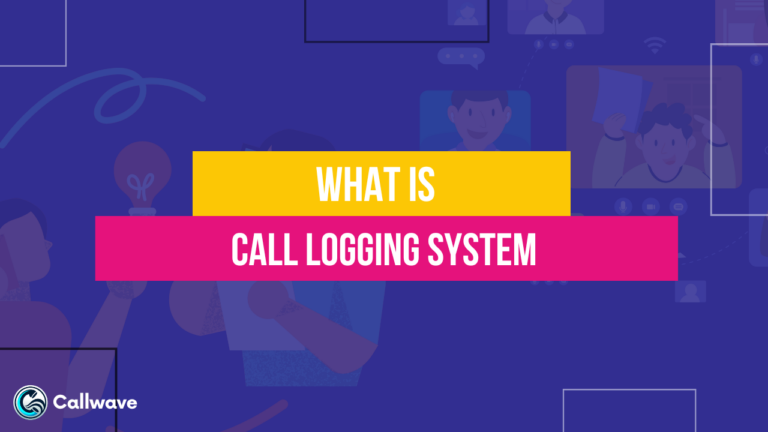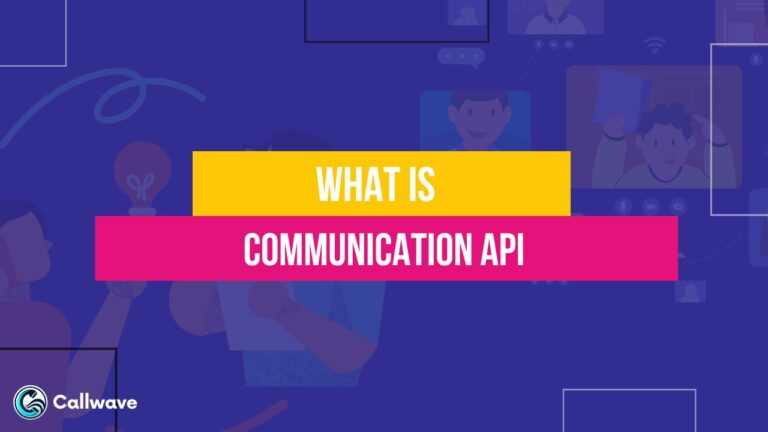Getting a VoIP number is easy and inexpensive compared to a traditional landline.
And with VoIP, you get better call quality, more features, and substantial cost savings compared to traditional phone services.
This article will explain what VoIP numbers are, how they work, the different types available, why you should get one, and step-by-step instructions for getting your own VoIP number.

What is a VoIP Number?
A VoIP phone number works just like a regular telephone number. You can make and receive calls over the internet to anyone with a phone number – even if they don’t have VoIP.
VoIP stands for Voice over Internet Protocol.
This technology allows voice calls and communication to be made over a broadband internet connection instead of traditional phone lines.

With VoIP, your voice call is converted into digital packets that are then transmitted over the internet. When someone calls your VoIP number, those packets are transmitted to the device you are using – such as your smartphone, computer, or VoIP phone.
VoIP providers assign you a real phone number with an area code just like traditional phone numbers.
So you can port your existing number or get a new number. Your contacts simply dial your VoIP number to call you, without needing any additional software or apps.
Some key things to know about VoIP numbers:
- VoIP numbers are sometimes called virtual phone numbers or cloud phone numbers.
- VoIP numbers can make and receive calls to any phone number or mobile phone.
- Works over internet connectivity – cellular data, WiFi, broadband, etc.
- Provides full capabilities of a business or residential phone line.
How Does VoIP Work?
VoIP converts your voice into digital signals that are transferred as data packets over the internet, as opposed to analog signals over copper wires with traditional landlines.

Here is a simple 4 step explanation of how a VoIP call works:
- Your voice is picked up by a microphone on your VoIP phone or device and converted into digital signals.
- Your VoIP service provider encodes these signals into IP packets that contain your voice data.
- These packets are transmitted over the internet to the person you are calling.
- At the receiving end, the packets are decoded back into audio signals and played through the speaker on the recipient’s phone.
This all happens very rapidly, so your call quality sounds natural like a regular phone call.
The process also works in reverse when receiving a call to your VoIP number. The caller’s voice is converted to data packets that travel over the internet to your device where you answer the call.
VoIP systems use advanced compression algorithms to minimize bandwidth usage and ensure call quality. Some key technical protocols used include SIP, RTP, STUN, TURN, and SRTP.
But the great thing about VoIP is that users don’t need to understand the complicated back-end technology. You simply use the VoIP phone service as you would any landline or mobile phone.
VoIP Number vs Landline
VoIP, which stands for Voice over Internet Protocol, has become a popular alternative to traditional landline phone services in recent years.
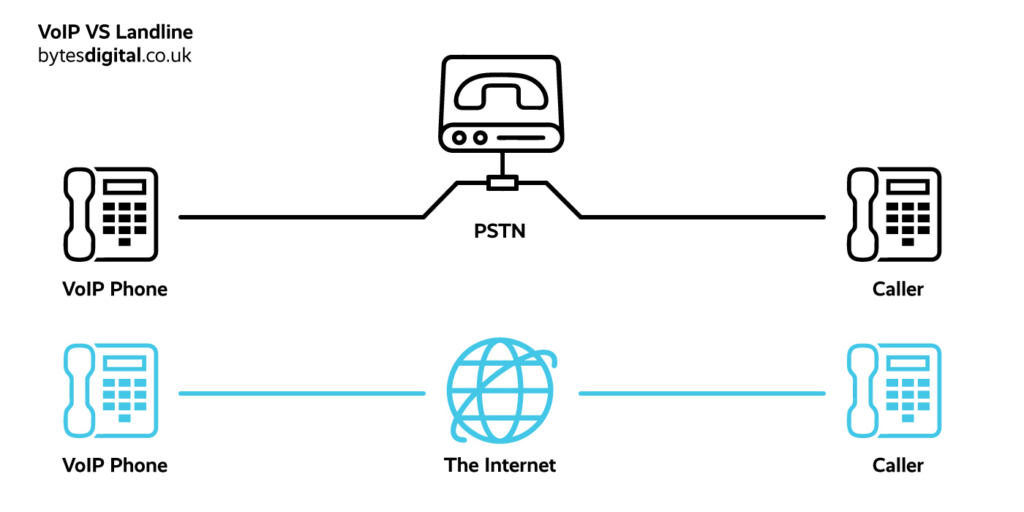
The main differences between VoIP numbers and landline numbers can be summarized as follows:
1. Connectivity
VoIP numbers connect calls over the internet, whereas landlines use the public switched telephone network (PSTN).
VoIP converts analog audio signals into digital data that can be transmitted over the internet.
As long as you have a stable broadband internet connection, you can make and receive VoIP calls. Landlines, on the other hand, require physical telephone lines going to your location.
2. Hardware
To use a VoIP number, you just need an IP phone or softphone app along with an internet connection.
With landlines, you need a telephone handset as well as wiring through your building connected back to the telephone company. VoIP provides more flexibility as you can essentially use it anywhere with internet access.
3. Numbering
VoIP numbers can have your local area code and sometimes your local exchange code. However, some VoIP providers offer numbers with different area codes.
Landline numbers are tied to geographical locations and specific exchanges within that area code. VoIP numbers are not location-dependent.
4. Features
VoIP offers a wide range of call features like call forwarding, call waiting, voicemail to email, auto attendant menus, call recording, conferencing, and more. These are standard features included with VoIP plans.
Landlines have limited built-in features, though you can add some functionality with extra telephony equipment.
5. Cost
VoIP plans are typically much cheaper than traditional landlines. Often plans start around $20 per month whereas landlines can cost $30 or more per month.
VoIP providers also usually don’t have contracts so you can cancel anytime. Many landline companies require 1 or 2-year contracts.
6. Maintenance
With VoIP, there is little maintenance as the provider handles any updates or issues remotely.
You simply plug your IP phone or adapter into your router or ethernet jack. Landlines require maintenance from the phone company for any wiring issues, which can lead to service disruptions.
7. Voice Quality
VoIP call quality used to be considered inferior to landlines. But with modern technology, VoIP calls are crystal clear.
Landlines do have a reputation for being a bit more consistent if you have any issues with your internet bandwidth.
8. Availability
VoIP numbers are available almost universally these days. Landlines are decreasing in availability as more people switch to mobile and internet-based phones.
Certain rural areas may still have limited access to VoIP. But it’s largely available in populated areas.
9. Emergency Calls
Landlines allow you to call 911 emergency services even with power outages or internet disruptions.
VoIP 911 calls could get interrupted if you lose power or internet. Providers offer backup power supplies and always-on internet to minimize this risk.
10. Security
Landlines are considered more secure as they are on private networks. VoIP calls go over the public internet which is more susceptible to data breaches or hacking.
However, modern VoIP systems have good security protections like encryption to minimize risks.
11. Number Porting
In most cases, you can port your existing landline or mobile number over to a VoIP service. This allows you to keep the same phone number while switching providers. Porting numbers does not work as easily the other way from VoIP to landline.
Overall, VoIP services provide a feature-rich and affordable alternative to traditional landlines.
The main advantages of VoIP are lower costs, more included features, and flexibility since you can use it from anywhere with an internet connection. The main downsides are potential call quality/reliability issues and higher security risks.
But for most residential and business customers, VoIP numbers are now the better option compared to antiquated landlines.
The lower costs and abundance of features like auto-attendants, call forwarding, conferencing, and voicemail to email make VoIP numbers the best choice for modern phone services.
Types of VoIP Numbers
There are a few different types of VoIP numbers to choose from depending on your needs:
1. Virtual Business Numbers
These are VoIP numbers that work like a business phone line but without any physical phones involved.
Virtual business numbers include features like call forwarding, toll-free numbers, auto attendants, greetings, and more.
They work great for teams, remote employees, solo entrepreneurs, and providing your customers with a professional business line.
2. Residential VoIP Numbers
You can get a personal VoIP number that works and functions just like your home landline number but without the landline.
Residential VoIP numbers can have unlimited nationwide calling, port your existing number, and provide features like voicemail, caller ID, call blocking, and 911 access. They work great as your main household phone line or as a secondary line.Toll-Freee Numbers
Toll-free numbers (800, 833, 844, etc) are VoIP numbers that callers can dial at no cost to them. The call costs are billed to the toll-free number owner rather than the caller.
Toll-free numbers help businesses drive inbound leads and sales calls. VoIP makes toll-free numbers affordable for any business compared to traditional analog lines.
3. Local Numbers
VoIP providers can assign you a local virtual phone number with a geographic area code as if you have a physical presence in that location.
This helps businesses and individuals establish a local presence and connect better with customers in specific cities or regions.
4. International Numbers
Some VoIP providers let you get virtual phone numbers from other countries like the UK, Canada, Mexico, and more.
International virtual numbers allow you to establish a local presence and brand in foreign markets and are useful for overseas sales calls.
Overall, VoIP provides complete flexibility and options when choosing a phone number that best fits your personal or business needs, location preferences, and budget.
Why Get a VoIP Number?
Here are the top reasons to get a VoIP number for your business or personal use:
1. Cost Savings
VoIP numbers can save you 50-75% compared to traditional landlines.
Installation fees are low or free. Monthly service for unlimited calling plans starts around $10 per month. International calls are either unlimited or extremely cheap compared to landline rates.
2. Flexibility
VoIP numbers can be used anywhere with an internet or cellular connection. Calls to your VoIP number can ring any cell phone, landline, computer app, or VoIP phone you set up. Easy to manage and update these call routing preferences.
3. Mobility
Take your VoIP phone number wherever you go. Travel overseas or constantly on the road? Simply forward your VoIP number to any cell phone or device and sound local anywhere.
4. Features
VoIP provides a full suite of features like voicemail, IVR, call forwarding, call analytics, call queues, CRM integration, online faxing, and other tools to enhance productivity.
5. Credibility
Having a professional business phone line increases trust and credibility – even if you are a startup or solopreneur working from home. A dedicated VoIP business number makes you look more established.
6. Separate Work & Personal
With VoIP, you can get a business phone number that keeps your personal and work calls separate. Ensure clients only have your business number without compromising privacy.
7. Advanced Capabilities
VoIP systems integrate with cloud software. This allows functionality like shared call inboxes, transferring calls, voicemail transcription, real-time analytics, and more.
8. Reliability
VoIP systems route over the internet so reliability is high as long as you have a good internet connection. Power outages don’t impact VoIP. Most providers have 99.99% uptime guarantees.
Overall, VoIP numbers provide tremendous benefits whether you are a large enterprise, small business, startup, remote employee, freelancer, or someone who just wants an affordable extra phone line.
How to Get a VoIP Number?
Getting your own VoIP number is quick and easy to do in just a few steps:
- Decide what type of VoIP number you need – toll-free, local, international, virtual business line, etc. based on your requirements.
- Research different VoIP providers and compare plans, prices, and features. Popular picks are Nextiva, Ooma, RingCentral, Vonage, Grasshopper, and 8×8.
- Sign up with the VoIP provider you select. You can get quotes, make payments, and complete signup 100% online.
- Pick the area code and specific number you want. Or port your existing number.
- Configure your call preferences like ring groups, hours of operation, voicemail setup, etc.
- Install apps or equipment if required like VoIP phones, computer apps, and smartphone apps. Entry-level plans work simply by forwarding calls.
- Start making and taking calls over Internet! You can now use your new VoIP number for personal or business communication.
It’s recommended to start with a monthly plan without any contracts so it’s easy to switch providers if needed.
Many VoIP services offer free trials or test drive demos so you can evaluate quality and features before paying.
Follow these simple steps to get your VoIP number activated within the hour and make internet calls right away.
Frequently Asked Questions (FAQ)
Ques 1. Is a VoIP number the same as a landline?
Ans. VoIP numbers function just like landline numbers, allowing you to make and receive calls over phone networks. However, the key difference is VoIP utilizes the internet so provides more flexibility and mobility compared to landlines confined to physical buildings.
Ques 2. Do you need internet for a VoIP number?
Ans. Yes, you need an internet connection like broadband, WiFi, or cellular data for both making and receiving VoIP calls. This gives you phone service mobility but as long as you have connectivity, call quality will be great.
Ques 3. What is the cost of a VoIP number?
Ans. VoIP numbers are very affordable, starting as low as $10 per month for basic residential service. Business plans with more features start around $20 per month. Significant savings compared to $30-$50 for traditional landlines.
Ques 4. Can VoIP numbers make international calls?
Ans. Yes, one of the biggest advantages of VoIP is cheap or even unlimited international calling to landlines and mobile phones in over 60 countries. This can save you hundreds compared to costly international landline rates.
Ques 5. Is call quality good with VoIP numbers?
Ans. Yes, modern VoIP networks provide excellent call quality that is at par or even better than landline calls. VoIP phone calls use wideband HD audio so sounds natural. As long as you have good internet, call quality will be great.

